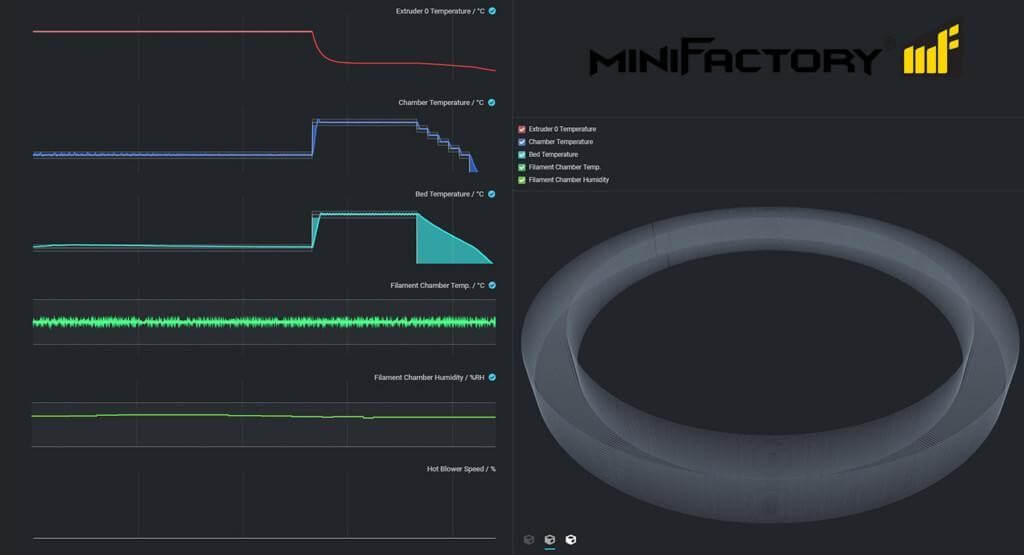Menu
close
Additive manufacturing is gradually becoming a more relevant alternative to traditional plastic processing methods.
More and more, additive manufacturing is used by designers and engineers. Now we need to put focus on the process, as well as on end-use application. miniFactory and Arkema are working together to provide reliable performance data for 3D Printed PEKK Seals. This work focuses on further optimizing print strategies, studying the influence of various heat cycles, boosting productivity, and verifying performance of parts in industry-specific tests. The whitepaper investigates how to make high quality semi-crystalline PEKK seals using Kepstan PEKK, the miniFactory Ultra 3D printer and miniFactory’s process monitoring software, Aarni.
Seals produced using the Ultra 3D printer are intended to be used in applications requiring resistance to extreme temperatures and aggressive chemicals. Fused Filament Fabrication (FFF) is central to small batch manufacturing using polymeric materials. It features benefits such as low capital costs, flexibility in design and mechanical simplicity. Compared with traditional methods, additive manufacturing significantly reduces material waste. Using a highly capable machine like the miniFactory Ultra, and employing a suitable process with carefully designed material, FFF of semi-crystalline PAEKs are made a reality for these applications.
The printing process was done using miniFactory’s custom process that automatically produces high crystallinity O-rings without any manual actions from the operator after the initial start of the print. The process uses conditions where the PEKK-SC remains mostly amorphous until the print is completed. Afterwards, the printer automatically adjusts the chamber temperature to induce a slow, controlled crystallization. This is possible due to the miniFactory Ultra 3D printer 250°C build chamber.
Semi-crystalline polymers are more challenging to print as crystallization competes with interlayer diffusion. These high-performance materials are used in demanding applications, and there cannot be any compromise on the performance of additively manufactured parts. Here is where miniFactory's custom process monitoring software, Aarni is used to verify and ensure repeatability in the process, and to make sure that all process parameters stay within the specified ranges.

The finished rings maintain their shape extremely well. Optical microscopy shows incredibly low porosity. There are only a few small pores where the perimeters meet the infill. The compressive properties of the printed PEKK seals closely match an extruded or compression molded reference. The density of the printed rings is >99% of the typical value for injection moulded semi-crystalline PEKK. These properties are particularly important as it is the main operating mode of a seal. These technical results firmly establish PEKK additive manufacturing as a serious option to produce high performance parts. The miniFactory Ultra can deliver considerably lower costs and raw material consumption in the production process compared to traditional methods. It can also substantially lower inventory costs and space requirements.
"*" indicates required fields